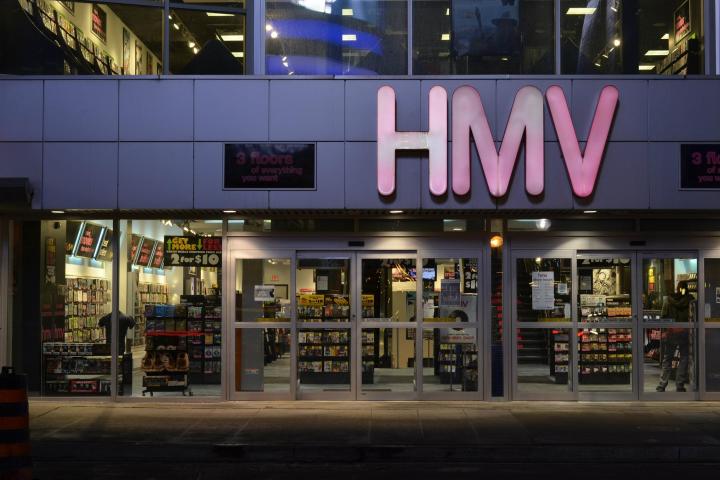
One of the answers is pretty simple: people still do buy physical music in fairly large numbers, as noted by Forbes, and they need a place to buy them. The first half of 2015 saw 62.4 million physical (CD and vinyl) album sales in the US, for instance. (22.4 million were sold in the UK.) HMV — which only operates in the UK and Canada — has significantly downsized to 125 stores from a high of 320. That being said, the Brits thought in 2013 that the store would go the way of its now-deceased competitors Tower and Virgin and were quite surprised when business turned around.
“Following the successful turnaround of HMV in the UK, Ireland and Canada, we are delighted to have agreed a licensing arrangement with Al Mana to partner with them to establish the HMV brand in the Middle East,” said Hilco (now HMV’s owner) exec Paul McGowan in a statement.
The second answer is that location — Qatar, Bahrain, Kuwait, Oman, and the United Arab Emirates — of some of these stores are in areas where physical formats may be the primary method of music consumption. “We believe there is considerable opportunity to develop a strong retail business under the [HMV] brand in the Gulf Region,” said Qatar retail conglomerate exec, Kamal Al Mana, “and to capitalize on the strong retail foundations already laid down by Hilco Capital in the HMV business over the last two years in the UK, Ireland and Canada.”
There are tentative plans to bring HMV to Egypt, Algeria, Tunisia, and Morocco. As for whether the brand will return to the US, where it had several stores in the ‘90s, we’re not sure. If the stores’ success continues abroad, though, we wouldn’t be too surprised.
Editors' Recommendations
- Best Buy’s new retail store looks like a true Apple Store competitor
- Amazon reportedly mulled another kind of brick-and-mortar store


